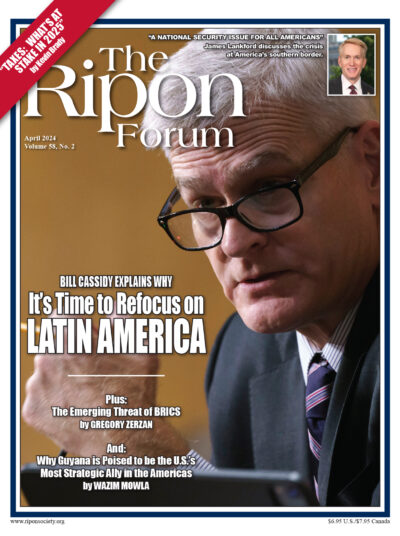
Over thirty years ago, the Family and Medical Leave Act (FMLA) became law, granting workers the right to unpaid, job-protected time off. While a significant step forward, the United States remains one of only seven countries worldwide without some form of universal paid family and medical leave.
Paid family leave is a complex issue, requiring careful consideration and collaboration. That’s why we, a Republican from Oklahoma and a Democrat from Pennsylvania, joined forces to establish the first-of-its-kind Paid Family Leave Working Group in January 2023. Comprising an equal balance of three Republicans and three Democrats, our Working Group is dedicated to finding solutions that benefit American families and businesses alike.
Our efforts began with a fact-finding mission to understand the diverse challenges faced by stakeholders from every perspective. Through a comprehensive six-part briefing series, we engaged with representatives from various industries, consulted states of all sizes, and listened to voices from businesses across the nation. These insights formed the basis of our policy framework, unveiled earlier this year. Our legislative framework focuses on four core pillars: establishing a public-private partnership for paid leave pilot programs, coordinating and harmonizing paid leave benefits across states, implementing small employer pooling for paid leave insurance, and enhancing the 45S paid leave tax credits for small businesses and working families.
Through a comprehensive six-part briefing series, we engaged with representatives from various industries, consulted states of all sizes, and listened to voices from businesses across the nation.
As we write this today, legislation is being drafted to enact initiatives aligned with these pillars. This effort represents the culmination of our Working Group’s year-long endeavor to propose durable, bipartisan solutions. However, it marks not the end, but rather the beginning of the most critical part of our journey. We must remain steadfast, as individuals, businesses, advocacy groups, and Members of Congress, in advancing this cause through the House, the Senate, and ultimately the White House. There will be challenges ahead, but we have a responsibility to American families to see this through to the end.
Access to paid family leave is transformative. It nurtures the well-being of families and bolsters the resilience of communities. When businesses provide these benefits, they foster stronger retention rates and cultivate a more dedicated and talented workforce. These are the outcomes we are striving towards to strengthen our families and our economy.
We are united in our resolve to usher in an era of federal paid family leave, where the prosperity and well-being of all Americans are upheld. Because at the end of the day, more paid family leave for more people is good for everyone. We hope you’ll join us.
Representatives Stephanie Bice (R-OK) and Chrissy Houlahan (D-PA) are co-chairs of the bipartisan Paid Family Leave Working Group. The House bipartisan Paid Family Leave Working Group was launched in January of 2023 to explore federal paid family leave policies. Supported by the Bipartisan Policy Center and other organizations, the working group’s mission is to bring more paid leave to more Americans through enduring policy solutions.




